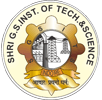Department of Computer Engineering of the Institute is pioneer in the field of Computer Engineering in the state of Madhya Pradesh and Central India. Established in year 1983, it offers the undergraduate and post graduate programmes, which started in year 1983 and 1986 respectively. The department is also a recognised center for Ph.D. under QIP.
The department envisions itself as a center of education, research and development for advancement of knowledge in the field of Computer Science and Engineering to best serve the needs of students, industry and society. The spirit of service, honesty and quality as its foundational strength, the department aims to achieve its noble objective through total commitment and involvement of faculty, staff and students.
The department has dedicated qualified team of experienced as well as young and enthusiastic faculty members coping successfully with new challenges and rapid advancements in technology. The research work of faculty members has been recognised at national and international level in areas like Artificial Intelligence, Machine learning, Deep Learning, Computer Networks, Cloud Computing, Big Data, IoT, Web Technologies etc. All the staff and faculty members work cooperatively in a very healthy and conducive environment.
Department has number of well-equipped laboratories, viz. General Computing Lab, Compute Network & Distributed Computing Lab, Software Engineering Lab, Hardware and Peripherals Lab, Data Science Lab, IoT Lab, Cluster Computing Lab, Project and Research Lab etc. Department promotes use of open source softwares and technologies. All the laboratories have Internet access through wired and wireless connection and are used by students for projects and practicals. Department has played key role in establishment of Institute’s Campus wide Network.
Collaboration with industries and research organizations is envisaged to be vital for sustaining relevance and continuous upgradation. The department is recognized by industries for imparting quality education and therefore attracts the best of the students in the state. The practical and skill based method of teaching the subjects makes the department the most preferred for admission. The department is actively engaged in carrying out collaborative activities with industries like training programs, joint research- development in emerging areas, joint student projects etc.
Placement record of UG and PG students has been very impressive since the beginning. Many companies of national and international repute visit the campus for recruitment, like Google, Amazon, Microsoft, Goldman Sachs, Accenture, Deloitte etc. and offer very high annual packages. Large number of students also pursue higher studies in national and foreign institutes/ universities of repute.
The department collaborated with IIT Bombay for starting the online education Programme (Distance Education Programme) about twenty years ago. It was selected by Govt. of India for project IMPACT funded by SWISS Development Corporation, World Bank and Ministry of Information Technology (Govt. of India). The department has also been part of the Technical Education Quality Improvement Program (TEQIP-I, TEQIP-II, TEQIP-III).
The department is very proud of its vast alumni base. Many of the alumni are serving at very high positions in different industries and organizations.
Innovation in Teaching-Learning Process:
Faculty members use various innovative Teaching-Learning methods to enable enhanced learning among students. Various innovative evaluation techniques are used which also directly and/or indirectly enhance the learning. Some of the techniques are:
- Auto Evaluation of Programming Assignments using Code Runner: This helps students in learning their mistakes during coding and provides an environment for self appraisal. Also, it allows students to learn from any place at any time at their own pace.
- Plagiarism check of Programming Assignments using Sim C: This keeps a check on plagiarism and builds up ethics of the students and also inculcates in them a sense of integrity and teaches the importance of data privacy and ownership.
- Use of open ended assignments: This allows improvement in thinking process of students and provides challenges to students.
- Open book tests: These are conducted to inculcate higher order learning in the students. Also, in design problems, student’s submissions are discussed to improve his thinking process and learning. Sample solution is given to the students and a group discussion is done for discussing the pros and cons of different solutions of the same problem, thereby promoting their ability to think out of the box.
- Use of open source software/tools/utilities like Moodle: These help students learn from anywhere and at the same time allows teachers to interact with the students in real time which helps in building better teaching learning environment.



